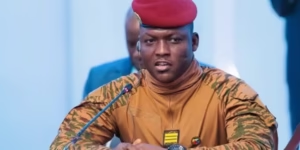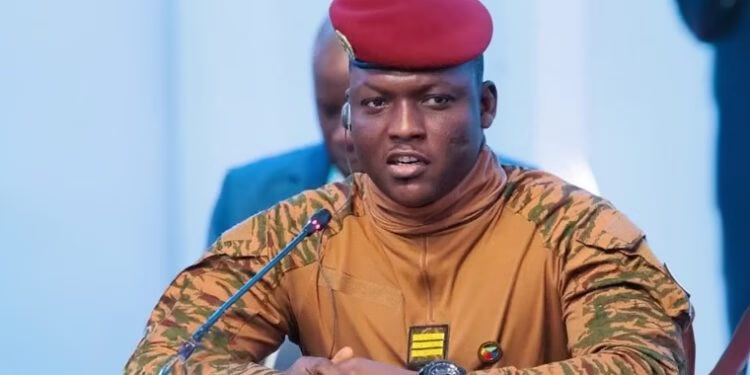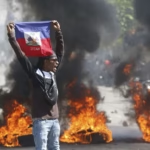The government of Burkina Faso, led by Ibrahim Traoré, has turned down a US plan to send deported people—including those who are not from Burkina Faso—to its country as part of a new deportation program.
The refusal was announced on Thursday when Minister of Foreign Affairs, Karamoko Jean-Marie Traoré, addressed the nation on television. He declared the American request unacceptable, emphasizing that it opposes the transitional government’s core principles.
‘Naturally, this proposal, which we deemed indecent at the time, is totally contrary to the value of dignity,’ emphasized the head of Burkinabe diplomacy. He explained that dignity is central to Captain Ibrahim Traoré’s vision, which is rooted in a sovereigntist approach during the transitional presidency.
This announcement comes as relations between the two countries are becoming increasingly tense.
A few hours earlier, the United States Embassy in Ouagadougou suspended most consular visa services for Burkinabe nationals. They instructed applicants to submit applications to Togo instead. The American embassy did not give a clear public reason. However, Minister Traoré said it could be a ‘pressure tactic.’ He noted that the U.S. had accused some Burkinabe nationals of violating visa rules.
According to reports from Kofi Oppong Kyekyeku, over forty people have been deported to Africa since July. These moves took place under quiet deals by Washington with at least five African countries. Human rights groups say the United States gave millions of dollars in aid to governments such as Eswatini, Rwanda, and Ghana to secure their agreement to accept deported people.
This arrangement outsources part of the deportation management process. It fuels debate over transparency, democratic accountability, and international protection standards.
In Ouagadougou, the refusal is shown as an act of independence and consistency. The authorities state they cannot host individuals who have no legal connection to Burkina Faso. This comes during security crises and major humanitarian challenges.
In diplomatic circles, concerns focus on two main points. First is the lack of reliable processes for identifying, caring for, and monitoring relocated persons. Second is the risk of legal disputes over international responsibility if non-citizens are relocated without a clear agreement.
The suspension of consular services in Ouagadougou and their move to Lomé have immediate effects for students, workers, and families working with American authorities.
Experts in migration law anticipate longer delays and higher costs, including travel and lodging expenses. There are also risks of interrupting legal moves. On the American side, sources close to deportation cases describe these regional changes as tools used during political disagreements with a partner country.
In Burkinabe economic and academic groups, concerns focus on side effects. These include problems hiring and relocating academics, worries about exchange and scholarship programs, and delays in some joint projects. Chambers of commerce and universities may need to adjust plans quickly. This can raise costs and add uncertainty to planning.
Human rights NGOs denounce deportation arrangements made case by case. They criticize financial incentives aimed at getting African states to agree. They see this as outsourcing migratory constraints and shifting the burden to countries whose systems are already strained. Legal experts emphasize a regulatory vacuum. Without multi-country agreements specifying status, protection, and procedural rights for deported people, the transfers remain vulnerable to legal challenges.
In the case of Burkina Faso, authorities claim a red line around dignity and social cohesion. They draw from the ‘vision’ of Captain Ibrahim Traoré, as mentioned by Minister Traoré.

Source: Face2Face Africa






